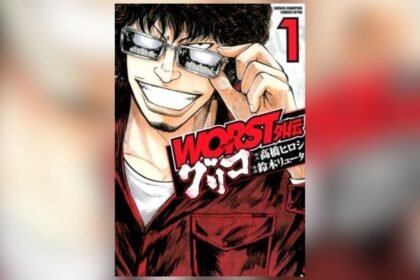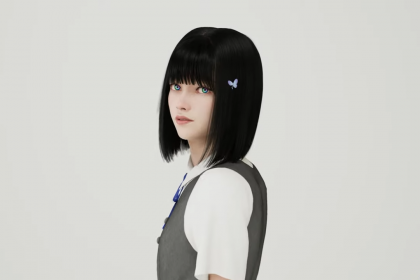Among its many genres, one that has left an indelible mark on both the anime industry and popular culture as a whole is the Mecha genre. Mecha anime revolves around the use of giant robotic machines, known as mechas, in a wide range of narratives. From epic battles between colossal mechas to intimate character-driven stories, the Mecha genre has captivated audiences worldwide for decades. In this article, we will delve into the origins, themes, impact, and future of this genre, exploring its enduring influence on the world of anime.
Origins of the Mecha Genre
The Mecha genre finds its roots in the early influences and inspirations that shaped anime as a whole. The concept of giant robots can be traced back to the post-World War II era when Japan was rebuilding itself. The country’s fascination with technology and the desire for a brighter future fueled the imagination of many creators. However, it was in the 1970s when this genre truly gained prominence with the introduction of groundbreaking series such as “Mazinger Z” and “Mobile Suit Gundam.” These series set the stage for the Mecha genre as we know it today, featuring awe-inspiring battles, complex characters, and intricate mecha designs that captured the hearts of viewers.
Themes and Symbolism in Mecha Anime
Beyond the spectacle of giant robots battling it out, Mecha anime explores a wide range of themes and employs symbolism to convey deeper meanings. One prevalent theme is the exploration of humanity’s relationship with technology. Mechas often serve as metaphors for the power and impact of technology, raising questions about the ethical and moral implications of our creations. Additionally, Mecha designs often incorporate symbolic elements, representing various ideals, cultures, or philosophies. These visual symbols add depth and layers of meaning to the narrative, enhancing the storytelling experience for the audience.
Further Readings: Mobile Suit Gundam: Flux of War and Pacifism in Anime Narrative
Impact on Pop Culture and Fanbase
Mecha anime has had a profound impact on popular culture, transcending borders and captivating audiences worldwide. The genre’s popularity has spawned a multitude of merchandise and collectibles, ranging from model kits and action figures to video games and clothing. Cosplay, the art of dressing up as fictional characters, has also been heavily influenced by this genre, with fans recreating the elaborate mecha suits and iconic characters. The Mecha fanbase is incredibly devoted, organizing conventions and events where enthusiasts can come together to celebrate their shared passion. The impact of this genre on popular culture and the dedicated fanbase it has cultivated cannot be understated.
Technological Advancements and Visual Spectacle
Mecha anime has been at the forefront of technological advancements in animation, pushing the boundaries of what is visually possible. Over the years, animation techniques have evolved, allowing for more fluid and dynamic movements of mechas during action sequences. Transformation sequences, where mechas change their forms, have become iconic moments in this genre, showcasing the intricate designs and adding a sense of spectacle to the storytelling. Furthermore, the influence of this genre extends beyond the realm of animation. Its visual style and storytelling techniques have inspired other forms of media and entertainment, such as videogames, movies, and even Western television shows.
Mecha Anime and Storytelling
The Mecha genre has a unique relationship with storytelling, blending action-packed battles with compelling narratives and character development. While the mechas themselves often take the spotlight. It is the human characters who drive the emotional core of the stories. Mecha anime explores themes of heroism, sacrifice, friendship, and love, presenting complex and relatable characters who face personal struggles amidst the chaos of mecha battles. The genre strikes a delicate balance between intense action sequences and poignant drama, creating a captivating storytelling experience that resonates with audiences.
Criticism and Controversies
Like any genre, Mecha anime is not without its share of criticism and controversies. Some critics argue that the Mecha genre can fall into clichés, relying too heavily on formulaic narratives and character archetypes. Others point out issues of cultural appropriation and representation, especially when Mecha anime draws inspiration from cultures outside of Japan. Additionally, debates and controversies within the Mecha community itself can arise, with fans passionately discussing and dissecting various aspects of the genre. These criticisms and controversies contribute to ongoing conversations about the evolution and future of Mecha anime.
Future of Mecha Anime
Looking ahead, the future of Mecha anime appears bright and filled with possibilities. Current trends indicate a continued interest in the genre, with new series being released and existing franchises being revitalized. Innovations in animation technology and storytelling techniques will likely result in even more visually stunning and emotionally engaging Mecha anime. Furthermore, the genre may explore new directions, experimenting with different narrative structures and themes to keep audiences captivated. As technology advances and societal concerns evolve, Mecha anime will undoubtedly adapt and reflect the changing landscape, ensuring its relevance in the anime industry.
Conclusion
In conclusion, the influence of the Mecha genre in anime is undeniable. From its origins in the post-war era to its global popularity today. Mecha anime has left an indelible mark on the anime industry and popular culture as a whole. Through its exploration of themes, its impact on pop culture, its technological advancements, and its unique storytelling, Mecha anime continues to captivate audiences and inspire new generations of fans. As the genre evolves and embraces the future, its enduring legacy as a pillar of the anime world remains strong.













